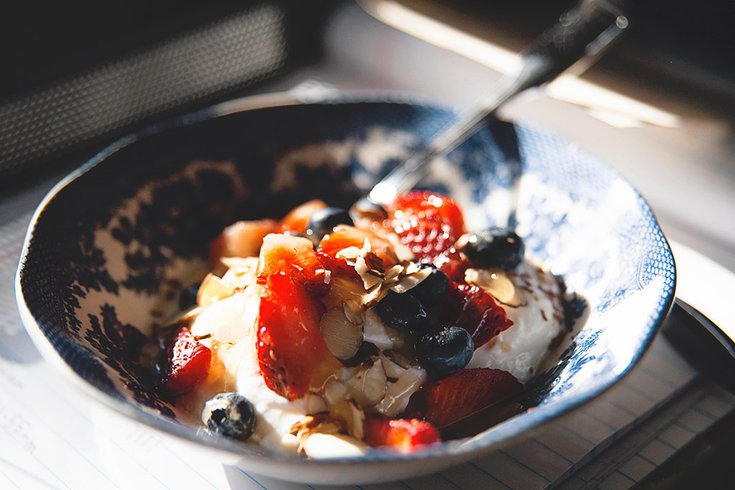
February 08, 2019
 Photo by Peter Hershey/on Unsplash
Photo by Peter Hershey/on Unsplash
Most yogurt is rich in probiotics and good for the gut.
If you’re one of the lucky ones yet to catch a cold or the flu this season, you probably want to do your darndest to keep that good luck rolling. Even if you’ve been sick, there’s a good chance you don’t want to relive that nightmare all over again.
So, maybe you’ve been chugging orange juice, or chowing down on antioxidant-rich foods to fend off the sickness that feels like a looming dark cloud over your head, but there’s a more effective weapon against getting sick: probiotic-rich yogurt.
“I’m not knocking apples, but if you want to eat one thing daily to keep the doctor away and fight off colds and flu this season, I recommend either eating a probiotic-rich yogurt or taking a probiotic supplement,” Dr. Steven Bowers wrote in Men’s Health.
RELATED READ: Are these popular diets (keto, paleo, etc.) keeping your gut healthy?
If you’re a religious kombucha drinker, then you’re probably well aware of probiotics and what they do, but if not, here’s the scoop.
According to Cleveland Clinic:
Probiotics are live bacteria and yeasts that are called the “good” microorganisms because they benefit the body, specifically the digestive system, by helping digest food, destroying disease-causing microorganisms, and producing vitamins.
Aside from balancing gut bacteria, probiotics have been lauded in research studies for treating numerous ailments from skin infections to mental illness and, of course, boosting the immune system, Cleveland Clinic explains.
According to Men's Health:
The live bacteria seem to interact with the microbes in our intestines. These 100 trillion microbes produce vitamins, such as B6, B12, and K; they help fight bad bacteria such as E. coli and Salmonella, and they help keep the bowels moving. Probiotics may also bolster the barrier function of the intestines, helping to keep viruses and bacteria from getting through.
The first thing you want to see when selecting a yogurt to fend off colds is "live and active cultures" somewhere on the packaging, advises Men's Health, which notes that lactobacillus acidophilus (l. acidophilus) and/or Bifidobacterium (B. bifidum) are the most potent bacteria.